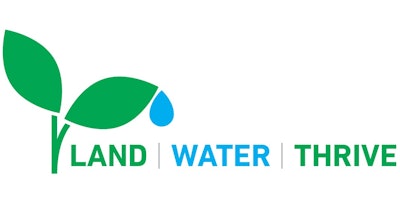
The Toro Company is introducing the Land. Water. Thrive. initiative, which aims to help improve water use efficiency, enhance outdoor environments and greenspaces and educate on sustainable agricultural practices. Over a two-year period, The Toro Foundation is contributing up to $1 million in grants to nonprofits in global communities with the Greenspace Enhancement Grant Program. This new program aims to support organizations in their efforts to revitalize parks and green spaces, enrich the outdoors of neighborhoods and schools, educate on the efficient use of water and support sustainable agriculture through community gardens.
“Impacting lives through the sustainable use of land and water is the focus of Land. Water. Thrive.,” said Judson McNeil, president of The Toro Foundation. “The grant program is directed at conserving and restoring our outdoor environments to ensure healthier, more vibrant and sustainable communities where our employees live and work.”
For 2018, the Greenspace Enhancement Grant Program will support organizations in the following cities worldwide:
- Beatrice, Nebraska
- Bloomington, Minnesota
- El Paso, Texas
- Iron Mountain, Michigan
- Riverside, California
- Sanford, Florida
- Shakopee, Minnesota
- Windom, Minnesota
- Xiamen City, China
- Ploiesti, Romania
- Spellbrook, United Kingdom
Locations included in the 2019 grant program will be announced at a later date.
For grant criteria, online application and other information, visit www.thetorocompany.com/land-water-thrive/our-communities. Applications are due by September 1, 2018.
Outside of local communities, and as part of our Land. Water. Thrive. initiative, Toro will look to further expand its efforts to enrich the lives of rural families in developing countries. It will focus on enabling smallholder farmers to enhance the productivity of the land and drive sustainable solutions to ensure a more food-secure future. As a leader in water-efficient drip irrigation for the agricultural market, the company will work to equip low-income farmers with improved irrigation technologies to better manage their limited water resources, promote sustainable agricultural practices, improve crop yields and build thriving communities.



















